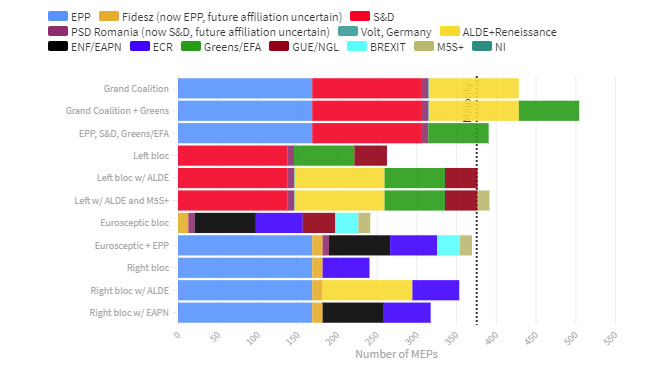“The EU is a Super State, the European Parliament is a talking shop and the Commission is run by unelected bureaucrats”. We’ve heard it all a thousand times from anti-European politicians of different stripes over the past 30 years.
The facts are quite different: the EU is a club of member states and is staying that way for the foreseeable future, the European Parliament has been a legislative chamber and budgetary authority for some time and the Commissioners are appointed by elected member state governments with the President coming from among the lead candidates (spitzenkandidaten in Euro jargon) put forward by the various political groups in the European Elections. Of course the system is far from perfect - what system of governance is? - but it has evolved and will evolve further. The so-called ‘democratic deficit' is nothing like it was in the earlier years of the EU.
Who succeeds Junker?
The retiring Commission President, Jean Claude Juncker, was the first to be appointed from among the lead candidates. He represented the European Peoples’ Party (the centre-right Christian Democrats) which was at the 2014 European Elections the largest party with the largest vote and the most seats and so was able to gain a majority in the Parliament. Despite that the then British Prime Minister, David Cameron, who some readers may remember, decided Mr Juncker was ‘unacceptable’ and opposed his election in the Council (the member states) which approves the appointment for the President. This was a ridiculous fight for Mr Cameron to pick - not just because he was certain to lose but also because, having gone on for years about the need for the EU to become more democratic, it was self-defeating not to welcome even an imperfect process that links the EU’s top jobs to the voters.
The European Elections of 2019 saw a significant increase in turnout across Europe, with 51% of voters going to the polls across the 28 member states. The EPP, while remaining the largest party by a small margin, lost support and seats to the extent that it looks highly unlikely that their lead candidate, Manfred Weber, can gain a majority in Parliament for the Commission Presidency. Mr Weber, from the Christian Social Union (the rather more right wing Bavarian partner of Angela Merkel’s CDU), was a controversial and not especially popular choice among the EPP not least because it is a fact of European Parliamentary life that appeal beyond one’s own political family is an essential part of a majority. Reduced to 24.2% of the seats the EPP cannot seriously expect to have things all their own way. Worse for Mr Weber is that he doesn’t appear to have the support among the member states to force through his election.
Manifestly competent alternatives to Weber
What happens next is a key test. If the first lead candidate cannot gain a majority in Parliament, then it must be open to others to try to gain that majority. The second largest group, the Socialists and Democrats (S&D) in which I and the other Labour MEPs sit, put forward Frank Timmermans, from the Netherlands where the S&D parties topped the poll. Mr Timmermans has not only been manifestly competent as first vice-president of the Commission, but he has the possibility of winning a majority in the House. He is also, importantly, a polite and businesslike man who is also a friend to Britain. The third group of Liberals and Macron-centre, formerly ALDE, now RE, hedged their bets putting forward ‘“a team” (in other words they probably couldn’t agree) which included the excellent Competition Commissioner from Denmark, Margarete Vestager - their de-facto lead candidate. Unfortunately for her, her aggressive (and entirely justified) pursuit of anti-competitive IT giants and opposition to key mergers in the manufacturing sector has probably made her too many enemies.
Elections must mean something
I and other S&D MEPs take the view that the new Commission President should come from among the lead candidates if any can gain a majority in Parliament - the graphic at the top shows how complex that could prove. If none can then perhaps another compromise will have to be found but in Strasbourg at the Parliament’s first session the democratic process must be given the chance to deliver consensus. The EPP must accept that topping the poll in a proportional election doesn’t give you the right either to appoint just who you want to whatever you want or to rip up the lead candidate process. Equally the member states should accept that elections have to mean something - so imposing their choice just won’t do. Posts like the Parliament President pose similar issues to the Commission President and are equally open to argument All this has the potential for deadlock and delay - which would be a great pity as there is so much urgent work to be done.
For those interested there is more on the Spitzenkandidaten process and the Flourish Data visual above here



